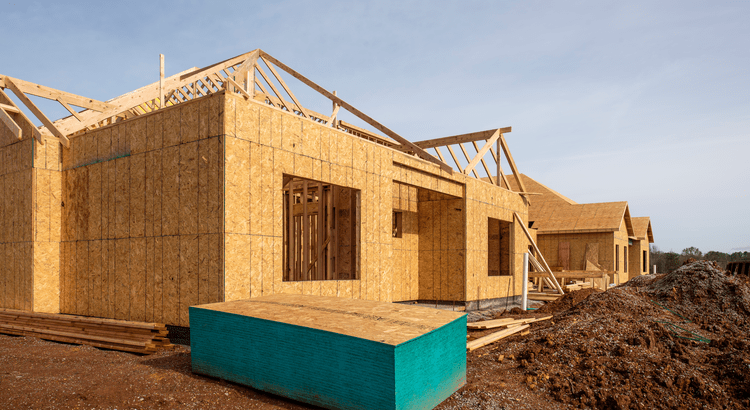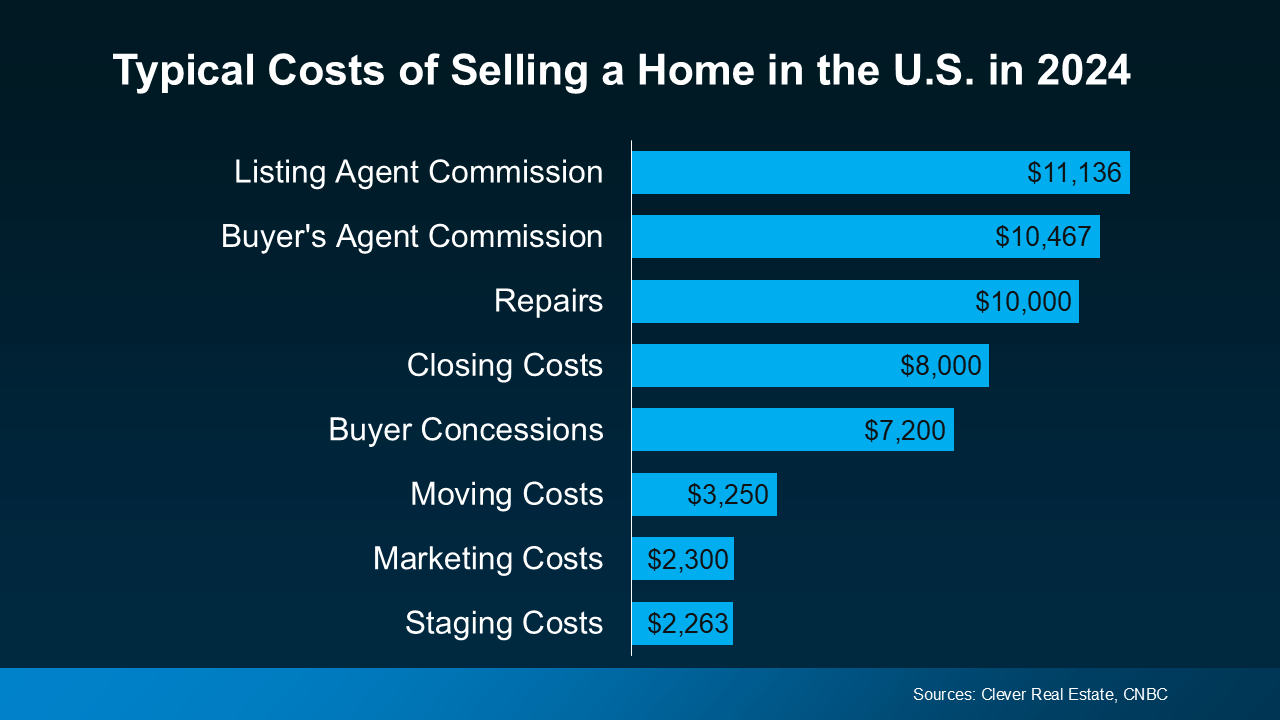How Much Does It Cost To Sell My House?
How Much Does It Cost To Sell My House?

If you’re considering selling your house, you’re likely wondering about the associated costs. The final amount will depend on several factors, such as the offer you accept, whether you assist with your buyer’s closing costs, how many repairs you decide to make, and more.
To provide you with a rough idea of what to expect, here’s some information on a few of the expenses you should be prepared for (see graph below):
Here’s something that helps put those costs into perspective: most homeowners today have built up a substantial amount of equity in their homes, which means they stand to gain significantly when they sell. Chances are, you do too. This equity can help quickly offset selling costs, and you may even have enough left over to contribute toward your next home purchase.
Let’s explore a few of the costs from the graph above to provide more context on what they encompass and where you might be able to save some money, when it makes sense.
Closing Costs and Commission
These are the fees you'll encounter at the closing table to cover different aspects of the sale. You'll have your own closing costs, and you may also choose to cover some of the buyer’s costs as a concession. As U.S. News Real Estate explains:
“Closing costs are fees that are paid to finalize the transaction and transfer ownership of the home to the buyer . . . Sellers can expect to pay 2% to 4% of the sale price of the home in fees and taxes on top of the agent commission. Based on the national median home sale price, this means that closing costs in 2023 for sellers are about $7,740 to $15,480. . .”
Taxes will vary by state, and agent commissions depend on what you agree upon in advance. It's important to remember that the figures in the chart above are just examples, not precise amounts. Additionally, if you've been paying into items like property taxes, mortgage escrow, etc., as part of your current mortgage payments, you may receive a credit back at closing that can help offset some of these selling expenses.
Pre-Listing Inspection and Repairs
One optional step some sellers consider is getting a pre-listing inspection. This gives you insight into potential issues that may arise during the buyer’s inspection—issues for which a buyer might request a credit (or concession) later on.
Having this inspection allows you to proactively address any repairs before listing, ensuring your home is ready to impress from the start.
If you decide to skip this step, an agent can still assist you. They can provide advice on aspects like paint colors, minor cosmetic repairs, what buyers are looking for, and whether it’s worth addressing anything else in advance. This guidance will help ensure you're investing money in areas that are most likely to yield a solid return on your investment.
Home Staging
As inventory increases, you may want to take some additional steps to ensure your house stands out. Staging is an optional strategy that can help your home show well. This might involve bringing in rental furniture if the house is vacant or adding art to create a warmer atmosphere. Some staging can even be done virtually after the photos are taken. But what is the typical cost? According to Bankrate:
“Home sellers typically pay somewhere between $782 and $2,817 in home staging costs . . . but the price tag can vary widely.”
If you choose to skip this step, you can rely on your agent’s advice regarding what looks good and what may appear cluttered. A great agent will offer suggestions such as removing a chair to improve the flow of a room, adding a rug to create warmth in a space, or taking down photographs to de-personalize certain areas.
Why Leaning on an Agent Is Key
If you’re looking to reduce your costs, you have options. However, be cautious about where you make cuts. While you might be able to forgo staging or a pre-listing inspection since those are optional, it’s important not to skimp on hiring a professional.
An agent is your key expert throughout the transaction. They’ll provide personalized advice at every stage, including tips on staging the house and which repairs to prioritize. This can help you avoid the expense of hiring an outside stager or paying for a pre-listing inspection.
But that’s not the only way your agent adds value. They’ll also develop customized marketing and pricing strategies that showcase your home’s best features and any improvements you’ve made to prepare it for sale. This can actually help your house sell for more in the long run.
Bottom Line
Want a clearer idea of what to expect when selling your house? Let’s have a conversation and go through it together.
Categories
Recent Posts











